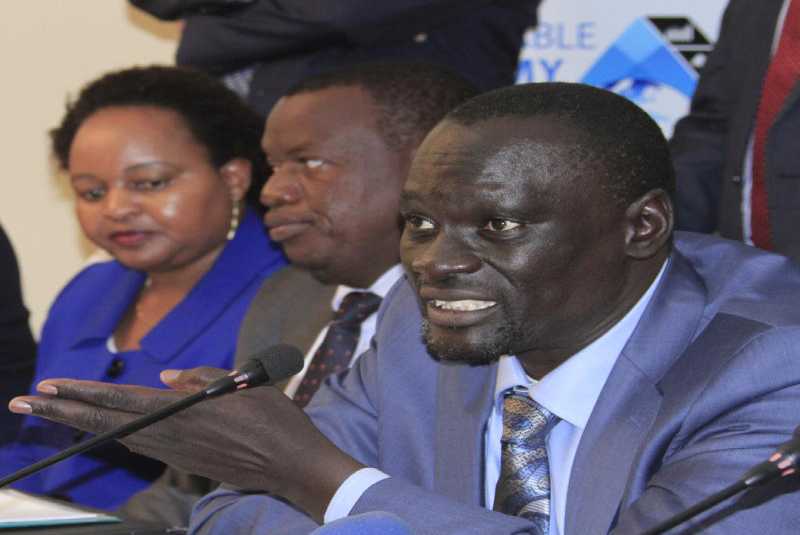×
The Standard e-Paper
Stay Informed, Even Offline

Council of Governors Chairman Josphat Nanok (right) addresses a press conference in Nairobi alongside Environment PS Charles Sunkuli (centre) and Kirinyaga Governor Anne Waiguru on the upcoming Blue Economy conference to be held in Nairobi in November between 26th-28th in Nairobi. Kenya is seeking to raise Sh800 million as it plans to host its first global conference. [David Njaaga, Standard]
Factional wars have rocked the Council of Governors (CoG) over the impending elections.